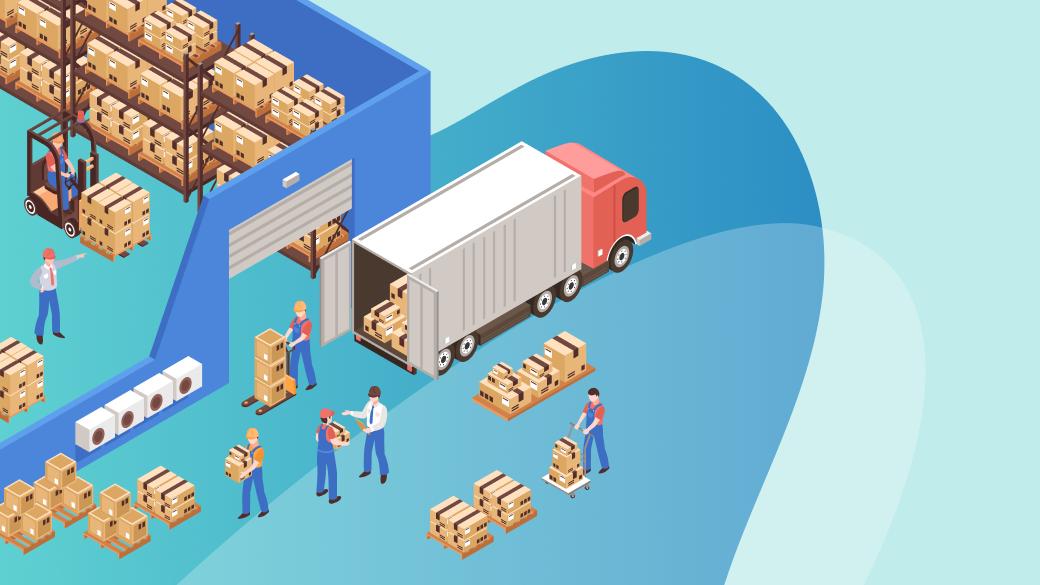==SummaryThis blog delves into the world of wholesalers, exploring their role as intermediaries between manufacturers and retailers and the value they bring to the supply chain. It highlights different types of wholesalers, compares them to distributors and retailers, and explains their place in the supply chain. Additionally, the article covers essential skills and qualifications for wholesalers and offers insights into how wholesaling fits into broader supply chain management. With practical examples and tips, it provides a comprehensive guide to navigating the dynamic wholesaling industry.Summary==
==TableOfContents
Who is a Wholesaler?
What does a Wholesaler Do?
3 Types of Wholesalers
Wholesaler vs. Distributor
Wholesale vs Retail, What is the Difference?
Understanding Wholesaling
Where Wholesaling Fits into the Supply Chain
Skills and Qualifications for WholesalersTableOfContents==
Who is a Wholesaler?
A wholesaler functions as an intermediary in the distribution process, connecting manufacturers or producers with retailers.
What does a Wholesaler Do?
A wholesaler sells products to other businesses in bulk. It’s like a grand exchange, where wholesalers, manufacturers and suppliers provide goods and services at bulk prices to fellow businesses such as retailers and distributors.
For a deeper dive into the wholesaler world, read our blog post “70 wholesale terms you should know” Read more.
3 Types of Wholesalers
In the wholesaling universe, different roles ensure a dynamic and efficient distribution network:
Merchant Wholesalers take ownership of the products they sell. They can be either full-service wholesalers, offering a wide range of products and services, or limited-service wholesalers, specialising in specific goods or functions.
Agents and Brokers facilitate transactions between buyers and sellers without taking ownership of the products.
Manufacturers’ Sales Branches or Offices act as wholesalers by marketing and selling products directly from the manufacturer.
Wholesaler vs. Distributor
Wholesalers’ focus is on efficient distribution without altering the products, benefitting retailers and other businesses. In parallel, distributors act as intermediaries between manufacturers and end users, actively adding value to products through processes like packaging or assembly. This dynamic involvement positions distributors as key contributors to the supply chain’s overall efficiency.
Wholesale vs Retail, What is the Difference?
Wholesalers operate within the B2B market, dealing in bulk quantities and providing discounted prices to retailers and other businesses. Their primary focus is on ensuring efficient distribution and logistics. In contrast, retailers navigate the B2C market, engaging in direct sales to end consumers.
Wholesalers also provide cost savings to retailers when retailers buy in bulk from the wholesaler. The retailer then repackages the bulk items into smaller quantities for sale directly to consumers.
Understanding Wholesaling
Wholesaling serves as the intermediary between manufacturers and retailers, ensuring the smooth flow of goods from production to distribution.
Some wholesalers also broker deals between other wholesalers and retail businesses that require a variety of goods, or components of goods, that can be more efficiently obtained from a single source.
For more information, read our blog post “What is B2B Wholesale? Benefits, Features & Tips”: Read here.
Where Wholesaling Fits into the Supply Chain
To understand where wholesaling fits into the supply chain universe, it’s helpful to examine it from a broader managerial perspective. Do you know when the term “supply chain management” is first used?
In 1982, Keith Oliver, a consultant at Booz Allen Hamilton, introduced the term “supply chain management” to the public domain in an interview for the Financial Times:
“Supply chain management (SCM) is the process of planning, implementing, and controlling the operations of the supply chain, with the purpose to satisfy customer requirements as efficiently as possible. It spans all movement and storage of raw materials, work-in-process inventory, and finished goods from point-of-origin to point-of-consumption.”[1]
In this world of interconnected processes, wholesalers play a crucial role in the supply chain symphony by managing the movement and storage of goods at a macro level and contributing to the overall harmony of the supply chain universe.
Skills and Qualifications for Wholesalers
Wholesalers fill the role of a superhero in the supply chain operations, serving as middle people between B2B and B2C companies and customers. Without the Wholesalers supplying the market, especially the eCommerce market, there will be nothing to buy or sell. Wholesalers need specific qualifications and skills in order to operate huge orders and
Strong analytical and strategic thinking makes wholesalers immune to problems and shapes their problem solving skills and forecasting abilities. Understanding customer needs and personalisation plays a crucial role in the wholesaling world.
Communication skills are vital for wholesale businesses because of the critical negotiating skills and long-term meetings with other businesses. Creating a strong relationship with your customer base is crucial for your business.
Negotiation skills come into play here as well, as wholesalers must secure the best deals and pricing for their customers.
Problem-solving skills play a crucial role in navigating around complex logistics operations as well as managing your supply chain.
A good understanding of inventory management, and keeping an eye on stockouts and overstocks is a crucial skill for a wholesaler, in a B2C environment business owners can keep an eye on what little stock they have, on the other hand, Wholesalers have to deal with huge stock and order volumes in order to keep up with the competitive market. Implementing cutting-edge technologies can ease the situation in many cases.
Data analysis proficiency & The ability to use software tools help wholesalers to forecast accurately and make plans accordingly. Being able to plan ahead in this dynamic environment plays a crucial role in the market.
==RelatedPosts
__post__how-to-get-a-wholesale-license
__post__choosing-the-right-b2b-ecommerce-platform-for-your-wholesale-business
__post__what-is-b2b-wholesale-benefits-features-and-tips
RelatedPosts==
Keening these skills and tips while managing your wholesale business can benefit you in this competitive and dynamic environment. Being able to understand how a business and customers’ buying habits play a major role in the wholesale business.
The future is bright for the wholesale businesses. Make it brighter with Simplisales, a simple and affordable B2B eCommerce solution for wholesalers

Leave a Reply